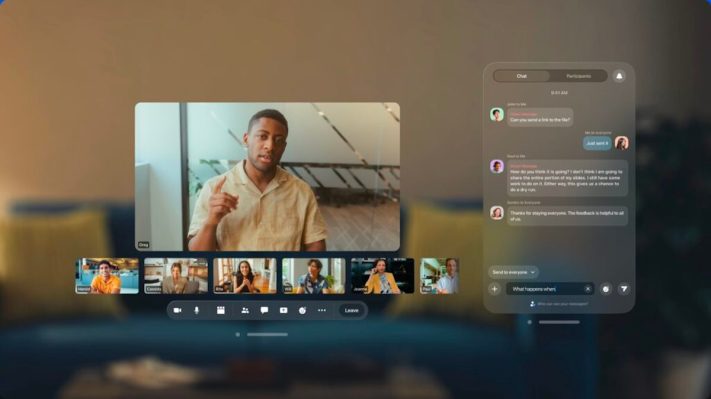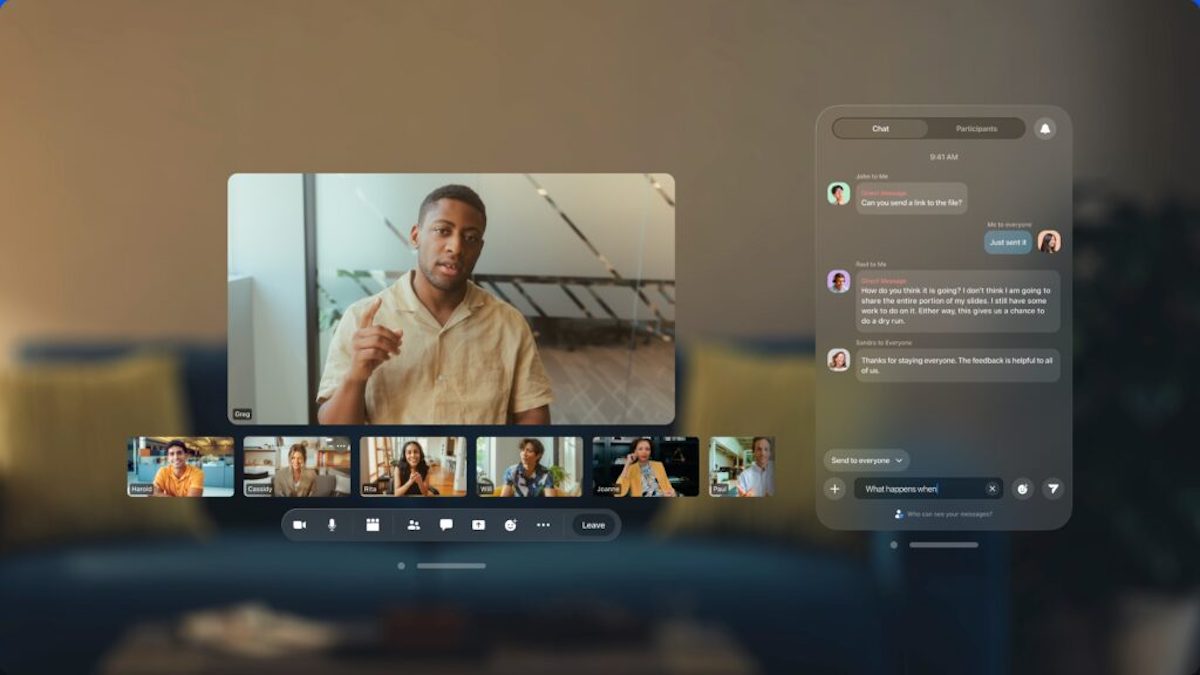
Ahead of the launch of Apple’s Vision Pro on Friday, Zoom revealed today its upcoming visionOS app, which is set to release on February 2. The new app brings capabilities such as “persona” support for users to use a digital avatar during calls, 3D object sharing, its chat feature “Team Chat” and more.
Apple’s Persona feature takes a face scan of the user and lets them have a spatial representation of themselves in Vision Pro. Zoom’s dedicated app supports Persona, allowing meeting participants to see their facial and hand movements. Zoom on Vision Pro will also make use of the headset’s AR technology, so video calls surface as a floating window, blending in with a user’s physical space.
“Zoom on Apple Vision Pro creates an immersive experience that can be scaled to the perfect size, which is ideal for users wanting to feel like they are in the same room as their colleagues and customers without the need for additional physical equipment or setup,” the company explains in a blog post.
Thanks to the three-dimensional interface of visionOS apps, users can share 3D files in Zoom and see objects come to life in their environment. The company uses game design as an example of a use case, explaining that it could allow designers to “collaborate and share the latest character model” with teammates. 3D object sharing won’t be available at launch, but Zoom says it will roll out later this spring.
Also coming to the app this spring is Team Chat and a feature Zoom calls “real-world pinning.” Team Chat is Zoom’s Slack competitor and enables users to easily share information with colleagues. The video conferencing platform launched its chat feature back in March 2023.
Lastly, Vision Pro headset wearers can pin up to five Zoom meeting participants anywhere in their environment. They also have the option to remove the background of pinned participants, which the company hopes will help users feel more connected.
Priced at $3,499, Vision Pro will feature nearly 200 dedicated apps, including streaming services Disney+, Max, Discovery+, Amazon Prime Video, Paramount+, Peacock, Pluto TV, Tubi, Fubo and Crunchyroll, among others. Notably, however, Netflix, Spotify and YouTube are missing from the list, which could mean some companies don’t believe Vision Pro will be that successful initially.

